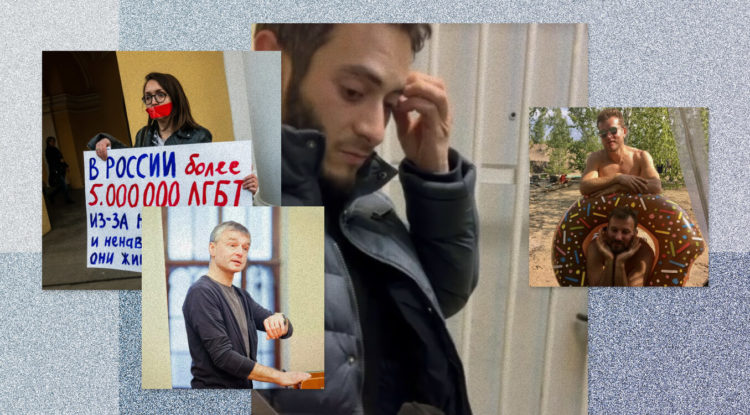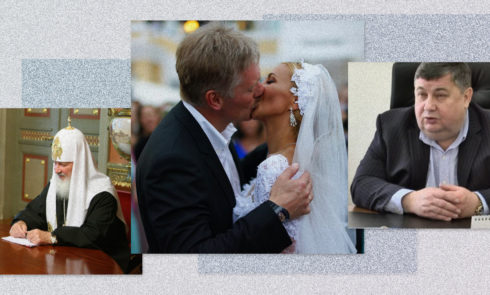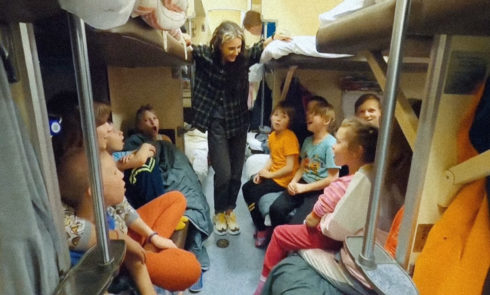On February 15, 2023, a presumably gay Chechen man Idris Arsamikov was detained in Moscow. Back in 2018, he fled to the Netherlands after being tortured by Chechen law enforcement officers. This time he returned to the country to attend his father’s funeral. After his detention in Moscow, Arsamikov is presumed to have been brought to Chechnya, where, as human rights activists fear, he risks being murdered for his sexual orientation. However, Chechnya is not the only place in Russia where LGBTQ+ people are murdered. In this article Holod looks back at three such cases from different parts of Russia.
Holod editorial staff stands against homophobia and all other forms of discrimination. This text contains descriptions of LGBTQ+ people’s murders. Skip this article if reading it might be a trigger for you.
A “crusade” against the LGBTQ+ community
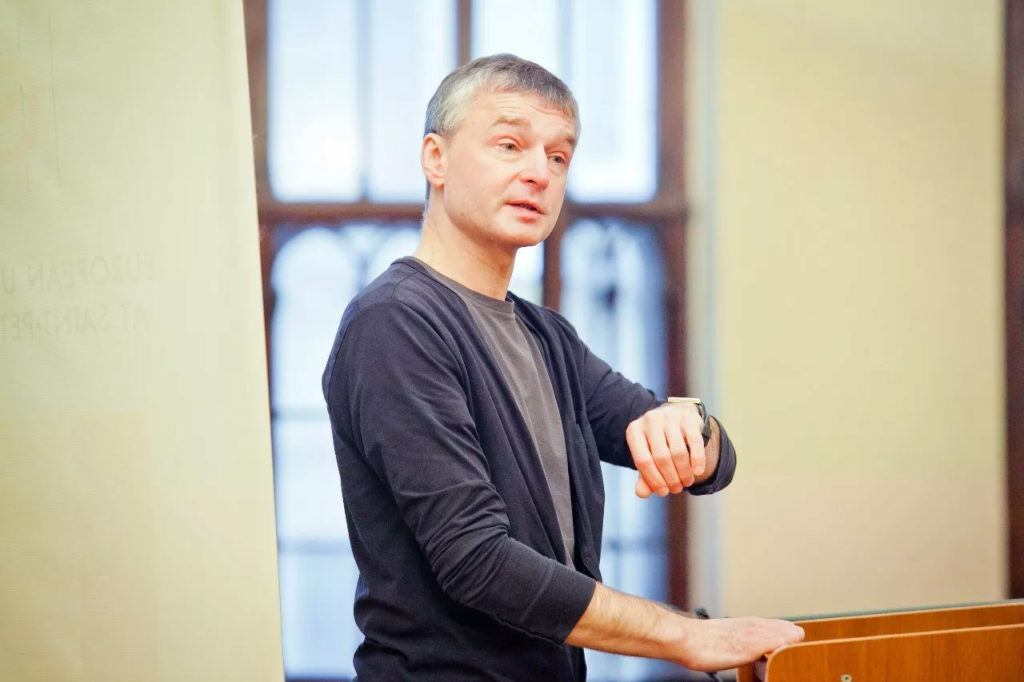
On March 31, 2016, Dmitry Tsilikin, 54, was found dead in his apartment in Saint Petersburg by his relatives. He was a staff writer at the Rosbalt news agency, and before that a culture section editor at the local Chas Pik newspaper. The last time anyone heard from Tsilikin was when he came back from Riga, Latvia, where he had been on a business trip. That was one week before he was found dead.
There were about 30 stab wounds on Tsilikin’s body. The investigation established that he died of those wounds several days before he was found. His murderer was Sergey Kosyrev, a 21-year old student of the Hydrometeorological University. They met online, and on March 27, Tsilikin invited Kosyrev to his home. According to the investigators’ theory, the two had an argument, and Kosyrev assaulted Tsilikin.
The Komsomolskaya Pravda newspaper wrote, citing a source in the investigating team, that, according to Kosyrev, he knew about Tsilikin’s homosexuality and wanted to gather some compromising information about him for blackmail. He had been meticulously preparing the murder: to his visit to Tsilikin he brought a knife and a non-lethal gun. Later Kosyrev called himself a “cleanser,” whose life was “a crusade against a certain social group,” the Fontanka online media outlet wrote. He killed Tsilikin out of hatred.
On May 30, 2017 a court sentenced Kosyrev to 8.5 years in a high-security penitentiary.
“Fell on the knife”

In the early hours of June 29, 2019, Anton Berezhnoy assaulted Roman Yedalov and his partner Yevgeny Yefimov with a knife at the entrance of the Kursky Railway Station in Moscow. “Fags, scumbags,” the murderer shouted as he stabbed Yedalov in the heart, killing him instantly. Yefimov got away with minor injuries.
Roman Yedalov had moved to Moscow from the village of Krynka, Rostov region, in the early 2000s to become a professional dancer. He enrolled in Alla Dukhova’s Todes ballet school. Several years later he quit it due to backaches and got a waiter job at the President Hotel. Later he became a restaurant manager. In Moscow Yedalov met Yefimov and they moved in together to Yefimov’s place in Podolsk, outside Moscow. The day when they were attacked they had partied at a gay club. Yefimov supposed later that the assailant must have followed them from the club and attacked them because of their sexual orientation.
Anton Berezhnoy was arrested on the day of the assault. He worked as a mover and had a prior conviction for assaulting a police officer. Berezhnoy claimed that he hadn’t planned to kill Yedalov and that he just “fell on the knife.” The Investigative Committee charged Berezhnoy with murdering Yedalov and assaulting Yefimov.
In February 2020, the jury acquitted Berezhnoy of murder charges, even though he had pleaded partially guilty. The court sentenced him to 23 months of restriction of freedom for battering Yefimov. In September of the same year, Moscow City Court overturned the acquittal and remitted the case for a new examination. At the same time, the charges were reclassified from murder to “infliction of grave injury which caused the victim’s death by negligence.”
The hearing was scheduled for June 1, 2021. Berezhnoy escaped from the court during a recess without even taking his passport with him. The next day he was declared wanted and on June 4, he was caught and remanded in custody. On June 9, Moscow’s Basmanny District Court sentenced Berezhnoy to nine years in a high-security penitentiary. This time the jury found him guilty but deserving of leniency.
“Moral Jihad”
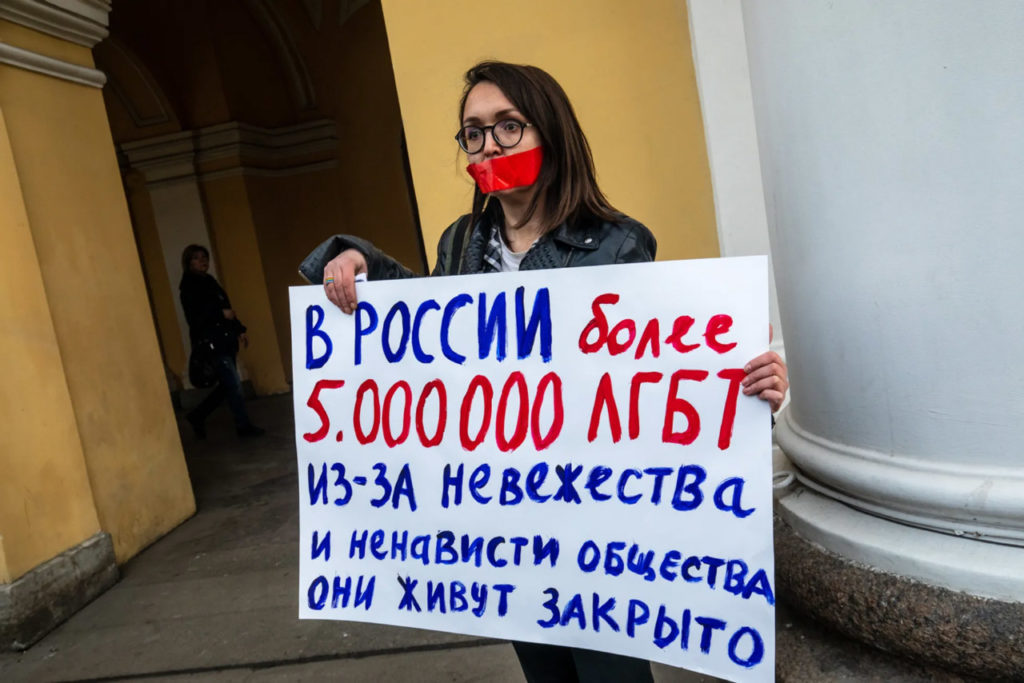
On July 21, 2019, Yelena Grigoryeva was found dead near her home in Saint-Petersburg. There were eight stab wounds and signs of strangling on her body. Grigoryeva was an activist, she attended rallies, including the “Russian marches” held by nationalists. Later she started protesting the annexation of Crimea and the war in Donbas as well as advocating for the rights of LGBTQ+ community. In late 2019, Grigoryeva came out as bisexual. From then on, she started getting threats, including from the “Saw Against LGBT” project (named with a reference to the Saw movie series), from the nationalists she had known, and from an “anti-gay fighter” Timur Bulatov.
Grigoryeva’s friends believed the Saw project to be responsible for her murder: in the summer of 2019 it had announced a “new hunting season,” the “game” being LGBTQ+ people. Human rights activist Nikita Tomilov blamed Grigoryeva’s death on Timur Bulatov, who had called her murder a case of “moral jihad.”
In connection with Grigoryeva’s murder, the police also questioned nationalist Nikolay Grachev. In May 2019, a few months before she was killed, Grigoryeva sued Grachev for rape. They had known each other since the time she participated in the “Russian marches.” Grachev didn’t like the “gay crowd,” which Grigoryeva was now a part of; he wanted to “scatter” it. So, he wrote to her from a fake account, introduced himself as a gay person and asked to let him stay overnight at her place.
Arriving at Grigoryeva’s home he demanded her to call other LGBTQ+ activists to “thrash them and film it.” After the police arrived several hours later, Grigoryeva filed a complaint. Grachev claimed that he “flung her once but did not hit her with his fists.” After that incident they did not see each other. Asked about the “Saw” project’s possible involvement in Gracheva’s murder, he said he was neither for nor against it but that he supported their willingness to intimidate LGBTQ+ people.
On July 25, the police detained a suspect in Grigoryeva’s murder, a native of Kyrgyzstan born in 1981, whose name was not disclosed. At the time the investigators stated that it wasn’t a hate murder and insisted that Grigoryeva “had been leading an antisocial lifestyle” and “drinking alcohol with the suspect.”
However, in the end it was Grigoryeva’s acquaintance who got convicted for her murder, a Saint-Petersburg resident Alexey Volnyanko. He was sentenced to eight years and one month in a high security penitentiary. Ksenia Mikhaylova, a lawyer with the Coming Out LGBTQ+ group doesn’t think that the investigators have provided sufficient amount of evidence to rule out that Volnyanko killed Grigoryeva out of hatred.
How common are such murders?
In 2017, the Sexuality Lab published statistics covering hate crimes against LGBTQ+ people, i.e., crimes in which an LGBTQ+ person was targeted specifically because of the offender’s biased attitude towards them. In 2010, for instance, 18 such crimes (including 13 murders) were recorded in Russia. In 2015 there were 65 (including 27 murders). Each year the number kept on growing.
In 2019, human rights activists recorded 41 cases of assault, violence, threats and threatening behavior driven by hatred toward the LGBTQ+ community in Moscow and the Moscow region alone. According to the Stimul LGBTQ+ group, most frequently such crimes are committed against homosexual and bisexual men lured into “fake dates.” One of the eleven assaults committed there in 2019 led to a murder.
